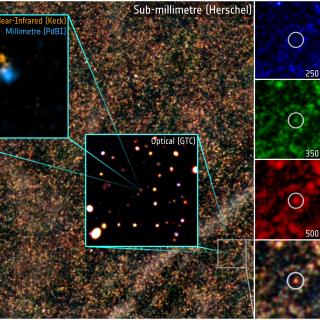Bibcode
Thomas, Daniel; Streblyanska, A.; Snedden, Stephanie; Simmons, Audrey; Rossi, Graziano; Oravetz, Daniel; Malanushenko, Viktor; Malanushenko, Elena; Ebelke, Garrett; da Costa, Luiz N. A.; Bundy, Kevin; Bizyaev, Dmitry; Brewington, Howard; Bahcall, Neta A.; White, Martin; Wake, David A.; Tojeiro, Rita; Tinker, Jeremy L.; Swanson, Molly E. C.; Skibba, Ramin A.; Schneider, Donald P.; Sánchez, Ariel G.; Schlegel, David J.; Samushia, Lado; Ross, Nicholas P.; Ross, Ashley J.; Percival, Will J.; Parejko, John K.; Padmanabhan, Nikhil; Nuza, Sebastián E.; McBride, Cameron K.; Maraston, Claudia; Manera, Marc; Kazin, Eyal; Ho, Shirley; Eisenstein, Daniel J.; Chen, Yanmei; Blanton, Michael; Berlind, Andreas A.; Weinberg, David H.; Zheng, Zheng; Zehavi, Idit; Guo, Hong
Referencia bibliográfica
The Astrophysical Journal, Volume 767, Issue 2, article id. 122, 19 id. (2013).
Fecha de publicación:
4
2013
Revista
Número de citas
84
Número de citas referidas
78
Descripción
We measure the luminosity and color dependence and the redshift
evolution of galaxy clustering in the Sloan Digital Sky Survey-III
Baryon Oscillation Spectroscopic Survey Ninth Data Release. We focus on
the projected two-point correlation function (2PCF) of subsets of its
CMASS sample, which includes about 260,000 galaxies over ~3300
deg2 in the redshift range 0.43 < z < 0.7. To minimize
the selection effect on galaxy clustering, we construct well-defined
luminosity and color subsamples by carefully accounting for the CMASS
galaxy selection cuts. The 2PCF of the whole CMASS sample, if
approximated by a power-law, has a correlation length of r 0
= 7.93 ± 0.06 h –1 Mpc and an index of γ =
1.85 ± 0.01. Clear dependences on galaxy luminosity and color are
found for the projected 2PCF in all redshift bins, with more luminous
and redder galaxies generally exhibiting stronger clustering and steeper
2PCF. The color dependence is also clearly seen for galaxies within the
red sequence, consistent with the behavior of SDSS-II main sample
galaxies at lower redshifts. At a given luminosity (k + e corrected), no
significant evolution of the projected 2PCFs with redshift is detected
for red sequence galaxies. We also construct galaxy samples of fixed
number density at different redshifts, using redshift-dependent
magnitude thresholds. The clustering of these galaxies in the CMASS
redshift range is found to be consistent with that predicted by passive
evolution. Our measurements of the luminosity and color dependence and
redshift evolution of galaxy clustering will allow for detailed modeling
of the relation between galaxies and dark matter halos and new
constraints on galaxy formation and evolution.
Proyectos relacionados

Formación y Evolución de Galaxias: Observaciones Infrarrojas y en otras Longitudes de Onda
Este grupo desarrolla varios proyectos extragalácticos en diferentes rangos del espectro electromagnético utilizando satélites y telescopios en tierra para estudiar la evolución cosmológica de las galaxias y el origen de la actividad nuclear en galaxias activas. En el aspecto instrumental, el grupo forma parte del consorcio internacional que ha
Ismael
Pérez Fournon